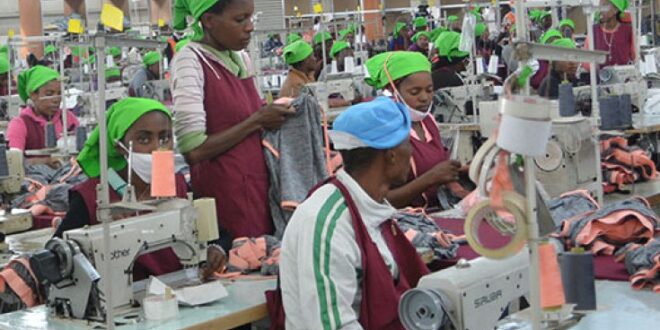The country that President Donald Trump declared “nobody’s ever heard of” during his 4 March address to Congress has been hit with the highest U.S. tariffs in the world. Lesotho tops the list of 20 African nations upon which the White House has announced what it calls “reciprocal” tariffs, which add to the baseline imposed on every country.
The executive order Trump signed yesterday lists levies applied to African nations, showing the worst-affected, after Lesotho’s 50 percent, are Madagascar – 47 percent; Mauritius – 40 percent; Botswana – 38 percent; Angola – 32 percent; Libya – 31 percent; and South Africa – 31 percent.
Trump announced an across-the-board additional tariff of 10 percent on most goods imported into the U.S. from Saturday, with some exceptions – the main ones being steel and aluminium articles, cars and parts already subject to certain tariffs. copper, pharmaceuticals, semi-conductors, lumber articles, bullion, energy and certain minerals not available in the United States.
The higher tariffs for 20 African nations, as well as for many other countries across the world, come into effect on Wednesday April 9.
Other African countries being levied tariffs in excess of 10 percent are:
- Algeria, 30 percent; Tunisia, 28 percent; Namibia and Cote d’Ivoire, 21 percent;
- Zimbabwe 18 percent; Malawi and Zambia, 17 percent; Mozambique 16 percent;
- Nigeria, 14 percent, Chad and Equatorial Guinea, 13 percent; Cameroon, 12 percent, and the Democratic Republic of the Congo, 11 percent.
The White House said the highest tariffs are being imposed on the countries with which the U.S. has the largest trade deficits, with the aim of boosting American manufacturing, jobs and economic security.
It claimed that “for generations, countries have taken advantage of the United States”. In one example it contended: “For decades, South Africa has imposed animal health restrictions that are not scientifically justified on U.S. pork products, permitting a very limited list of U.S. pork exports to enter South Africa.
“South Africa also heavily restricts U.S. poultry exports through high tariffs, anti-dumping duties, and unjustified animal health restrictions. These barriers have contributed to a 78% decline in U.S. poultry exports to South Africa, from $89 million in 2019 to $19 million 2024.”
Retaliation for “health restrictions” is not limited to Africa.
For example, U.S. Secretary of Commerce Howard Lutnick complained yesterday that the “European Union won’t take chicken from America…They hate our beef, because our beef is beautiful and theirs is weak” – a comment that inspired a predictable spate of caricatures and jokes on social media. The European Union has barred imports of U.S. beef under a 1989 health regulation that banned the use of growth hormones in the EU.
 موقع وجه أفريقيا موقع وجه أفريقيا هو موقع مهتم بمتابعة التطورات في القارة الأفريقية
موقع وجه أفريقيا موقع وجه أفريقيا هو موقع مهتم بمتابعة التطورات في القارة الأفريقية


